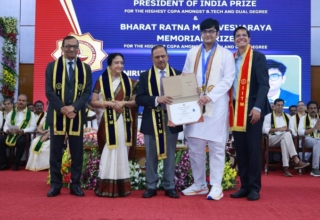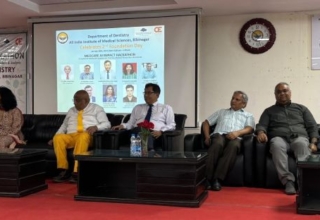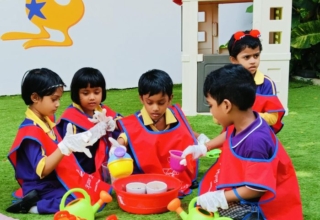
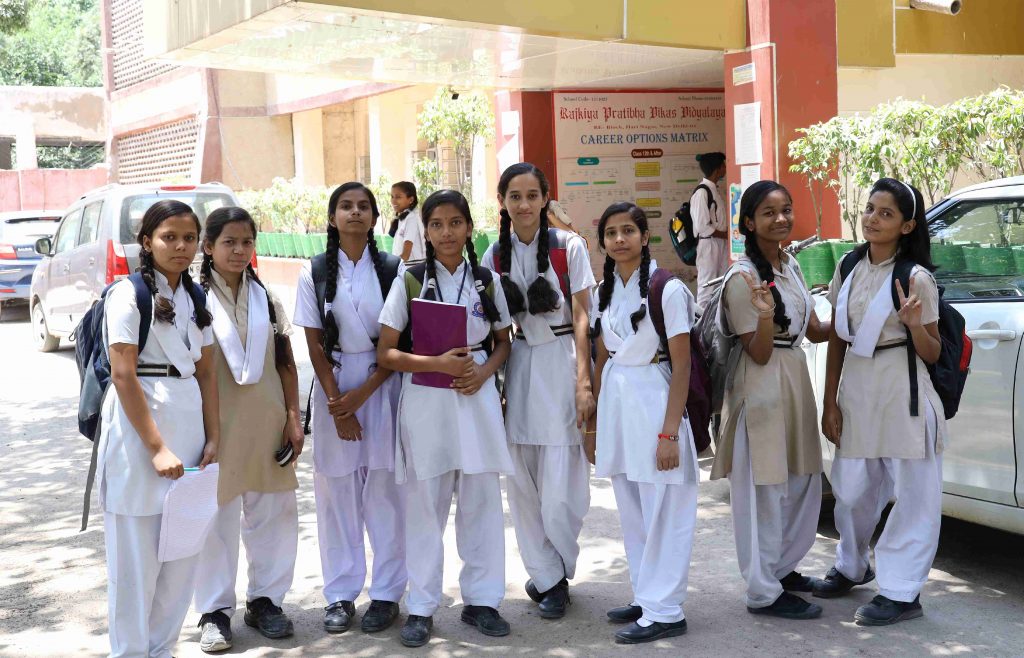
For close to 30 years, Indian Parliament has never spent a full day discussing country’s education system and now most discerning people are forgetting that public education is a core social contract of democracy and a basic objective of for which welfare state of India has committed constitutionally. That ideology has been completely overturned in favor of a cost efficiency story of non-state players
By Autar Nehru
Seventy two years ago, the discourse around school education in the newly independent India was how to make education an instrument of fostering an inclusive, enlightened and egalitarian nation building society. That way school education was to become building block of a new emergent India that will be progressive, enabling and caring.
In this thought process much of which was captured by Kothari Commission (1966), while it was felt that universal access of education should be a matter of right, still given the lack of resources to make it justiciable, it was left to the state to make public education available, accessible and affordable in that spirit. However, as Prof R Govinda, a former vice-chancellor of NUEPA and an acclaimed school education policy expert said at the recent webinar titled, “Re-imagining Education for Equitable, Democratic Society’, it has been a different story where instead of the lofty inclusive and empowering objectives of education as a common societal good, it is a continuing story of segregation and discrimination. “The inequalities in school system are rather an antithesis of common learning pathways that our constitutional founders visualized as there is now a school for every section of society and in a sense inequality are made starker and accepted narrative by our education system. With crumbling infrastructure, the goals of education for all will be seriously jeopardized and it is heading to a grim situation with this pandemic ,” he added.

While the quality of education imparted in government schools across the country has been a challenge gone from bad to worse, yet the erosion of trust between these schools and parent communities has been accelerated by a spiraling positive narrative about private schooling. Private schools have to a large extent emerged as an alternative in this narrative on its inherent strength as well as on a manufactured and aided perception. This spreading notion has in fact given a reason for thousands of budget private schools to bloom everywhere mostly with untrained low paid teachers and shoddy infrastructure.
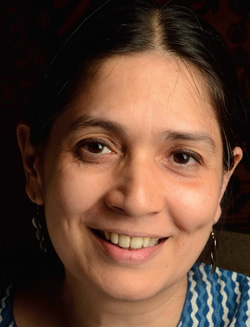
According to Kiran Bhatty, Senior Fellow, Centre for Policy Research (CPR) and a former National Coordinator RTE at NCPCR, non-state actors have been presented as cost effective and efficient alternatives to government schools where emphasis on quality has gone down despite the enactment of Right to Education Act, 2009 (as per reports only about 12.7 schools in the country are RTE compliant). “Government has given up on itself is part of problem. The other part is that private and other non-state providers who come on promise of better governance and costing does’t hold true either. The values brought by these non-state actors aren’t democratic, egalitarian and uniform. In supplementary text books, assessments or teacher training, it is a common knowledge how these players are delivering and at what price?” she said at a webinar on ‘ Regulation of Private Schools and Non-state Actors in Public Education System’ hosted by RTE Forum on July 16.
The covid19 pandemic disrupted education completely as a continuing civilizational nation has reduced the choices and channels of educational process long ago to normative and replicator delivery structures. At the same time, this crisis has provided the opportunity for increased technocratic view, interference and influence in this process as online education becomes the choice of fighting this disruption. It is a different tale that in a vast country as India, more than half of children in school going age despite best intention and effort can’t go online because of accessibility, cost and lack of devices. These children in the bottom of the pyramid are left out and a large number of them may even dropout if this pandemic prolongs with a multiplier effect. The normal time teacher bashing has now given way to a new paradigm in which teacher is replaced with technology. Teacher education abandoned, vacancies not filled and crisis not acknowledged. Child is now only learner and potentially a consumer. Both teachers and children have lost agency.
When we are preparing a society through education then the question of non-state actors becoming part of policy apparatus through various committees and other indirect influencers naturally raises eyebrows, their motives need to be questioned. According to Dr Anupam Pachauri, Centre for Policy Research in Higher Education (CPRHE), the role of non-state actors if unpacked will reveal that investment on education at household level has increased over the years and this is impacting the poor more. “The claim of efficiency about private schools can’t be corroborated as no evidence exists,” and adding about non-state actors she continues, “yet in our research we have found in case of South Delhi Municipal Corporation, teachers of the schools complaining about how they were obstructed in classrooms and faulted to make sure a definite message goes out “
A friend in need is a friend indeed, goes the saying. But seeing the confrontation between private schools and parents, it appears this wasn’t a friendly relationship at all. Parents, which is a largest stakeholder as a community in school education isn’t organized and it is only in the past a few years that an effort has started. So, the community’s legitimate concerns remain unaddressed. This pandemic pushed the envelope and in a more spontaneous reaction to fee demand by schools, a lot of parents came on streets and even knocked at the doors of courts. “The matter reaching the Supreme Court is in itself a telling tale of a parent’s plight in our country. It was very unfortunate the way the Apex Court decided on the plea and not taking a stand on state regulating every school in the country because schools are more than several ways connected to constitutionality of the state,” said Pradipta Nayak, president AIPA, Odisha. According to him there needs to be clear cut regulatory policy for every school and private schools shouldn’t be allowed to collect disproportionate fee to its establishment cost and a reasonable surplus as order by the Supreme Court. “It would have in fitness of things if SC had directed MHRD or the ministry itself had taken a policy stand keeping the difficulty of parents in this pandemic and not allowed the situation to come to a state where we have to demonstrate in front of schools,” he added. He also made claims that private school lobbies have been doing everything possible to break the resistance of parents and weakening the movement, “but we are committed to this fight till its logical end.” Isn’t it a time for a national policy on fee regulation, when 13 states have it already in some form?
The biggest problem is data about private schools. There isn’t enough information and transparency or self-regulation of these schools is a long time suspect. Bhatty advocates a monitoring architecture different from what exists today. “NCPCR is struck between two ministries—Women and Child Development and Human Resources Development, and there is a structural problem. We need an independent and representative monitoring body to tame the challenge,” she said. As of now what is happening that a low level (block or zone) education officer is entrusted with monitoring job. In most cases he is intimated, bribed or pressurized to give favorable reports because of the presence of big coporates, businessmen, politicians, school chains and other non-state actors in the system.
There is no denying that the fundamental importance of public education system remains as desired as ever and in this pandemic when it has come with a rethink opportunity, Government should start a dialogue on an architecture that will reassert this importance to this whole discourse and put education on right tracks.


